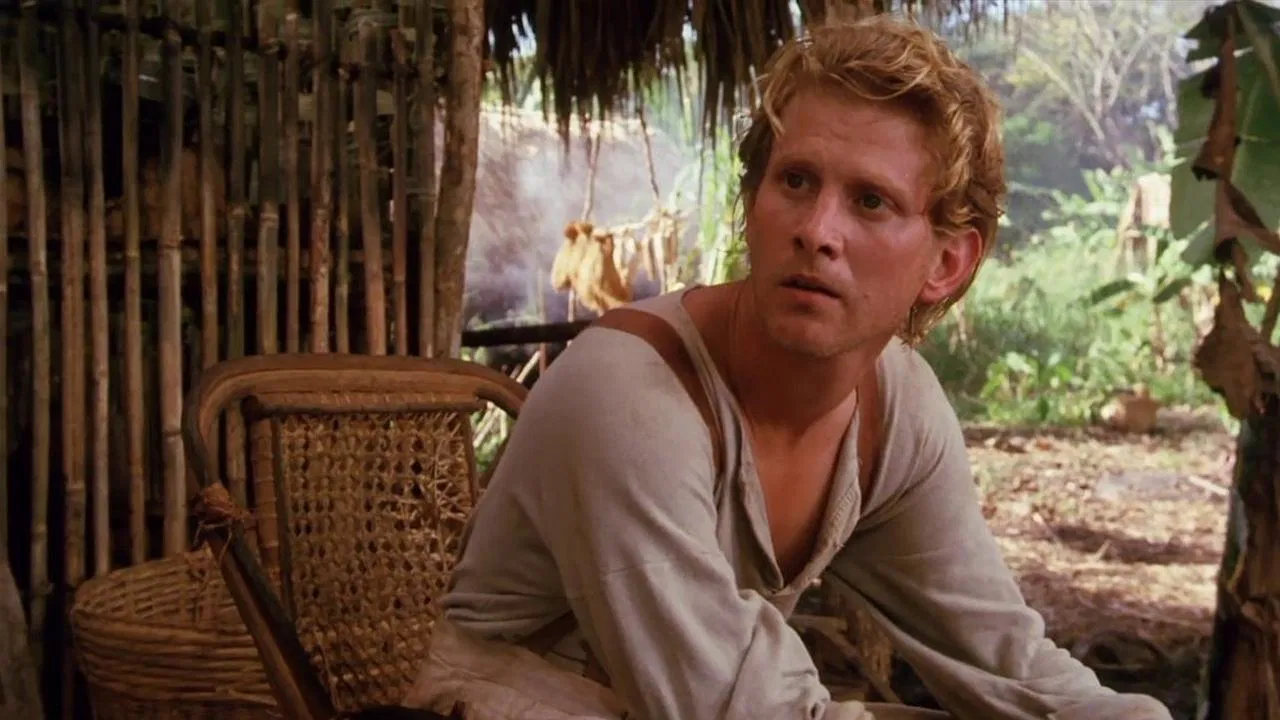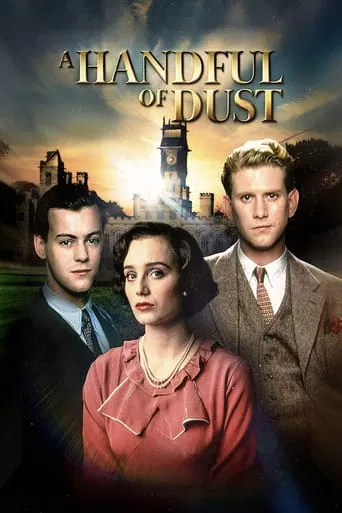

The hammerblow of human cruelty dressed in the velvet glove of pre-war hoch-Englishness. It's distressing that terrible things happen to the pathetic yet likable protagonist Tony (James Wilby) - even more so that they are delivered in the slow drip of self-interested scheming rather than in galvanising dramatic confrontations.Actually, Wilby is one of the two weak links of this film. He's not quite got the richness or range to suggest a redemptive development to his character. He's not sympathetic enough. The other might be Sturridge's peculiar, impressionistic direction that can fail to give the story enough propulsion.What the film does have are a number of fine performances from a top-drawer supporting cast. One fears Alec Guiness may be a final-frame cameo, but his contribution is in fact at least as substantial as Brando's in Apocalypse Now. Kristin Scott Thomas is quite excellent, at once endearing and blindly self-interested. And I also liked very much Pip Torrens, a really sharp study of a new sort of British gent - modern and knowing, but no cad. 6/10
... View MoreI decided to watch this purely on account of the magnificent cast, not realising it was another Evelyn Waugh adaptation. Maybe if I'd known, I wouldn't have bothered because I absolutely HATED Brideshead Revisited, also directed by Charles Sturridge. Perhaps the necessary compactness of a film adaptation compared to the lumbering drawn-out length of the Brideshead TV-series is what made it work for me.What a magnificent film this is: sensitively directed, beautifully shot and the amazing cast absolutely spot-on. The understated performances of James Wilby and Kristin Scott Thomas as the two doomed main characters are just perfect to make this strange story come to life. The stellar supporting cast all add up to a feast of fine acting.In my opinion, AN UNDERRATED MASTERPIECE.
... View More"A Handful of Dust" is a period film (circa 1935 approx) which tells of a woman (K Scott Thomas) who becomes restless rattling around in a huge English mansion with her family and servants and decides to take a flat in London for he purposes of a liaison with a handsome young man of dubious character. Her affair results in an upheaval which sees her husband going off on an Amazon expedition while she stays and frets about her divorce settlement. The film doesn't end so much as it just quits with many dangling loose ends. There are no highs or lows of emotions in this very well crafted bit of nothingness and the story is so bland and uneventful there's little reason to recommend it. A knock-off of a story by Evelyn Waugh who penned the wonderful "Brideshead Revisited", this film seems to have needed much more time to tell its abruptly truncated tale. Passable with no CC or subtitles on the DVD I watched. (C+)
... View MoreThe filmmakers of 'A Handful of Dust' are the same creative dynamos behind the hugely popular 'Brideshead Revisited'. They take the approach they took to 'Brideshead', which Waugh wrote when he was happy, with 'Dust', a novel which Waugh wrote when he wife was cheating on him and when he hated his life. 'Brideshead' was a much happier novel, and many purists consider it not to be a good work of Waugh's because it is lacking the acidic wit, satire and disgust of his characters which can be found in many (though not all) of his works. 'Brideshead' is a slow novel, something which most Waugh novels aren't, and comes as close as Waugh ever came to writing a soap opera. So, instead of giving us a sharp, nasty satire, which the novel itself is, we get a blander, kinder and very unfunny version of the novel. The moral bankruptcy of the characters, more or less the point of the whole novel, is hardly registered. The characters are having a "jolly good time" doing some bad things, but Sturridge and the two other writers (!) don't convey that what their characters are doing is bad. They skip over it, and instead spend all their time in giving away plot twists in the beginning of the film, to create "suspense", and restructuring the film, so all the unimportant scenes get maximum screen time. Even with the nice scenery, the film lacks the speed and fragmentary narrative of the novel, one of the reasons why the novel was considered so revolutionary, and comes across as a blah, nearly witless, edited-for-TV episode of Masterpiece Theater, instead of the theatrical film which it is and should be. This shouldn't come as a surprise, though: 'Brideshead Revisted' aired for months on Masterpiece Theater. The actors, though many are miscast, do their best, most of the technical aspects are there in some form, but the real problem lies with the filmmakers and their unwillingness to make a film which might be dark, mean or angry.
... View More